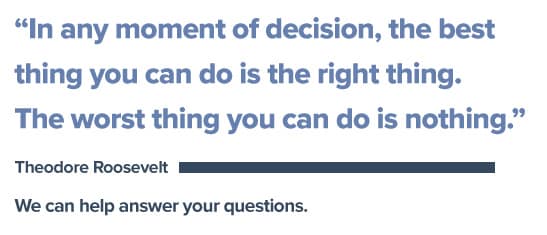Tobacco Lawsuit
A tobacco lawsuit may be an option for people who smoked cigarettes and other tobacco products and developed lung cancer or chronic obstructive pulmonary disease (COPD). Since the 1950s, doctors and other medical professionals have linked cigarettes and smoking to lung cancer and other diseases, such as heart disease. Although scientific evidence has suggested a link between cigarettes and lung cancer for many years, tobacco companies continually fought lawsuits brought against them. Affected individuals and their families may be able to pursue compensation with the help of a product liability attorney.
For more information, contact Attorney Group. We offer free, confidential, no obligation consultations. We can help answer your questions, and if you choose to pursue a case we can connect you with an affiliated tobacco lawsuit attorney who can assist you throughout the legal process.

Have You Seen a Tobacco Lawsuit Commercial?
You may have seen a tobacco lawsuit commercial on television and wondered whether you or a loved one have been affected by cigarettes and smoking and, if so, whether you are eligible to pursue a claim against the manufacturer or others. The purpose of this article is to provide you with additional information so that you have a better understanding of your options.

Cigarettes and Other Tobacco Products
Cigarettes and other tobacco products are regulated by the U.S. Food and Drug Administration (FDA) under the Family Smoking and Prevention Control Act, a federal statute passed by the United States Congress in 2009. Prior to FDA regulation, tobacco products were primarily controlled by individual states and congressional regulation.
Key statistics and facts regarding the use of cigarettes in the U.S., according to the Centers for Disease Control and Prevention (CDC) and the U.S. Department of Health and Human Services include:
- In 2015, an estimated 15.1 percent of all adults in the U.S. (36.5 million people) smoke cigarettes
- Each day, more than 3,200 under the age of 18 smoke their first cigarette
- Each day, over 2,000 youth and young adults are estimated to become daily cigarette smokers
- The tobacco industry spends billions of dollars each year to advertise their products
Total economic cost of smoking is more than $300 billion per year, including $170 billion in direct medical care costs for adults and more than $156 billion in lost productivity due to premature death and secondhand smoke exposure
(888) 888-0612
Smoking and Health Risks
There are a number of risks associated with and linked to cigarette smoking. According to the CDC, tobacco use leads to disease and disability and is the leading cause of preventable death in the United States.
In a report published by the U.S. Department of Health and Human Services, cigarette smoking is reportedly responsible for nearly 6 million deaths worldwide.
In the United States, more than 480,000 people die each year from cigarette smoking, including more than 41,000 deaths from exposure to secondhand smoke. Likewise, smoking causes more deaths each year than HIV, illegal drug use, alcohol use, motor vehicle injuries and firearm-related incidents combined.
Smoking is also estimated to increase to increase the risk for coronary disease, stroke and lung cancer.
Smoking and Cancer
Cigarette smoking can cause cancer almost anywhere in the body, including:
- Bladder
- Blood (acute myeloid leukemia)
- Cervix
- Colon and rectum (colorectal)
- Esophagus
- Kidney and ureter
- Larynx
- Liver
- Oropharynx (includes part of the throat, tongue, soft palate and tonsils)
- Pancreas
- Stomach
- Trachea, bronchus and lung
According to the CDC, cigarette smoking is the number one risk factor for lung cancer and is linked to approximately 80 to 90 percent of lung cancers in the United States. Additionally, people who smoke cigarettes are 15 to 30 times more likely to get lung cancer or die from lung cancer than people who do not smoke.
(888) 888-0612
Other Smoking Risks
Smoking has the potential to harm every organ of the body, affecting a person’s overall health. According to the CDC, other serious health risks linked to cigarettes and smoking include:
- Risks associated with pregnancy, including preterm delivery, stillbirth, low birth weight, sudden infant death syndrome (SIDS or crib death), ectopic pregnancy and orofacial clefts in infants
- Problems affecting men’s sperm, which can lead to a reduction in fertility and an increase for birth defects and miscarriage
- Greater risks affecting bone health
- Tooth loss
- Increased risk for cataracts and age-related macular degeneration, a condition characterized by damage to a small spot near the center of the retina
- Risk of developing type 2 diabetes
- Adverse effects such as inflammation and decreased immune function
- Risk of rheumatoid arthritis
Smokers are at greater risk for diseases that affect the heart and blood vessels as well as the lungs. Cigarette smoking is the cause of most cases of lung cancer as well as lung diseases related to smoking, including COPD, emphysema and chronic bronchitis.
Secondhand Smoke Health Effects
Exposure to secondhand smoke has the potential to adversely affect nonsmokers, possibly leading to a number of diseases and other health complications, including heart disease, stroke, increased risk of heart attack, lung cancer and sudden infant death syndrome (SIDS).
Additionally, studies have shown that secondhand smoke can cause serious health problems in children. Children whose parents smoke are more likely to get sick more often, experience wheezing and coughing more often, have an asthma attack (as well as more freuquent attacks), and get more ear infections.
(888) 888-0612
Has There Been a Tobacco Recall?
Like many consumer products, cigarettes and other tobacco products are subject to recall. According to the CDC, Philip Morris U.S.A. announced a voluntary recall of 36 cigarette product lines in May 1995. Approximately 8 billion cigarettes were recalled because the company detected unusual tastes and peculiar odors during production and identified methyl isothiocyanate (MITC), a poisonous chemical that may cause severe eye, respiratory, and skin irritation as well as pain, vomiting, and blindness. Recalled cigarettes were manufactured between May 13, 1995 and May 22, 1995.
Although not an official recall, the FDA used its regulatory authority to pull four types of cigarettes manufactured by R.J. Reynolds from the market in 2015. In a press release published by the FDA in September 2015, the agency issued orders to stop the sale and distribution of the cigarettes because the products were found to have different characteristics than previous products.
The decision to pull the cigarettes was based on scientific evidence, including “a failure to demonstrate that increased yields of harmful or potentially harmful constituents, higher levels of menthol, and/or the addition of new ingredients in the currently marketed products — when compared to the predicate products — do not raise different questions of public health,” according to the press release.
Even if there had not been a tobacco recall, lawsuits have claimed that the product manufacturers failed to disclose or downplayed the known side effects related to the use of cigarettes and smoking, and that patients suffered damages as a result.
Failure to warn of side effects or other adverse health risks associated with the product can be a basis of product liability, regardless of whether the drug has been recalled.
Lauren A. on May 16, 2016
Attorney Group reviewed by:"These guys are a pleasure to work with -- very strategic and very responsive, which makes for a great business partner! I can tell that they are passionate about making sure all clients get the attention and expertise they deserve."Rating: 5 ★★★★★
Is There a Tobacco Class Action?
Several class action lawsuits have been filed against tobacco manufacturers claiming that the companies knowingly sold the products and concealed the hazards associated with them. While one particular class action lawsuit was thrown out of the Florida Supreme Court in 2006, other suits have been filed on behalf of cigarette smokers.
Multiple class action lawsuits have been filed against tobacco companies alleging deceptive advertising and marketing, including a class action filed against Santa Fe Natural Tobacco Company (SFNTC), manufacturer of American Spirit cigarettes. Plaintiffs in those class actions claimed that SFNTC deceptively advertised its American Spirit brand of cigarettes as “100% additive free.” As a result of SFNTC’s marketing campaign, plaintiffs claimed that many consumers believed that American Spirit cigarettes were safer to use than regular cigarettes when they in fact were not.
Tobacco Settlements
In 1998, the Attorneys General of 46 states and four of the largest tobacco companies agreed to settle cases in which those states claimed cigarettes contributed to adverse health problems that led to significant costs for their state public health systems. This agreement became known as the Tobacco Master Settlement agreement.
As a result of the settlement, tobacco companies agreed to stop engaging in certain advertising practices, such as ad campaigns aimed at minors and children, and make annual payments to the states involved to fund anti-smoking campaigns and public health programs, including a minimum of $206 billion over the first 25 years.
Other settlements have been reached as well, including a $45 million settlement after a class action lawsuit was filed against Philip Morris USA Inc. claiming that the company’s Marlboro Lights and Marlboro Ultra Lights cigarettes were deceptively advertised, marketed and sold as healthier alternatives to regular or full-flavor cigarettes.
(888) 888-0612
Tobacco Lawsuit Claims
For more than 50 years, smokers, their families and government entities have been filing lawsuits against tobacco companies. According to the Public Health Law Center, few lawsuits were successful in the beginning, as most lawsuits were filed on behalf individual smokers and their families and aggressively denied by big tobacco companies. Early cases were filed using the theories of negligence, breach of warranty and misrepresentation.
Tobacco litigation reemerged in the 1980s and 90s when plaintiffs began filing lawsuits claiming that big tobacco companies knew cigarette smoking caused lung cancer and that cigarettes were addictive. In most cases, tobacco companies argued that smokers knowingly assumed the risks associated with smoking. Tobacco companies were largely successful in defending these lawsuits.
Other lawsuits have focused on the use of “light” and “ultra light” cigarettes. Plaintiffs in these cases have claimed that tobacco companies advertise these types of cigarettes as a safer alternative to regular, full flavor cigarettes, when they are not.
Class action lawsuits filed on behalf of smokers who smoked “light” and “ultra light” cigarettes have had mixed results. Although several cases have been dismissed, tobacco companies remain vulnerable to similar class action lawsuits based on individual state consumer protection and unfair business practice laws.
Tobacco Lawsuit News
- 2017A $45 million settlement is reached in a class action lawsuit against Philip Morris USA in which the company’s Marlboro Lights and Marlboro Ultra Lights cigarettes were allegedly deceptively advertised. The settlement reportedly offers payments to anyone who bought those types of cigarettes between November 1, 1971 and June 22, 2010 in the state of Arkansas.
- 2014According to the New York Times, a Florida jury awards $23 billion dollars to the family of a smoker who died of lung cancer at the age of 36. After an appeal, punitive damages were reduced to just under $17 million dollars.
- 2008The U.S. Supreme Court rules that the tobacco industry’s argument in a class action lawsuit filed in Maine were not preempted due to the cigarette manufacturer’s compliance with federal labeling regulations, allowing the class action to proceed.
- 1998Attorneys General of 46 states as well as the District of Columbia, Puerto Rico and the Virgin Islands entered into what became known as the “Master Settlement Agreement” with Philip Morris USA, R.J. Reynolds Tobacco Company, Brown and Williamson Tobacco Corp., and Lorillard Tobacco Company, the four largest cigarette manufacturers in the U.S.
- 1994Mississippi Attorney General Michael Moore announces that lawsuits were being filed in Mississippi against the tobacco industry seeking to recover $940 million for the state’s medical expenses, the first in a series of lawsuits against the industry on behalf of individual states. Over the course of the next three to four years, more than 40 states would eventually file suits seeking compensation to recover for Medicaid and other state health expenses.
- 1992U.S. Supreme Court rules that the 1965 warning labels on cigarette packs does not shield companies from lawsuits.
- 1983Rose Cipollone files product liability case against three cigarette manufacturers, Liggett Group, Philip Morris, and Lorillard. Although Cipollone died in 1984, her family pursued legal action and was awarded $400,000 in damage, marking the first time a tobacco company had to pay damages to the family of a smoker. The tobacco company appealed, and the verdict was eventually reversed.
- 1982U.S. Surgeon General C. Everett Koop notes that secondhand smoke could cause lung cancer.
- 1965U.S. Congress passes the Federal Cigarette Labeling and Advertising Act, requiring a surgeon general's warning on cigarette packs.
- 1964U.S. Surgeon General’s Report on Smoking and Health began suggesting a link between smoking and cancer.
- 1954Tobacco Industry Research Committee issues “A Frank Statement” in the New York Times in which they claim that the products they make are not injurious to the health of smokers.
- 1954Eva Cooper files wrongful death lawsuit against tobacco giant R.J. Reynolds after the death of her husband. Cooper loses the case.
- 1950Study published in the British Medical Journal links smoking to lung cancer and heart disease.
How a Tobacco Lawsuit Can Help
Product makers have a duty to provide safe products. If there are risks of harm associated with their products, they also must provide adequate warnings. If a product maker fails to fulfill this duty, it could be held liable in lawsuits for injuries that may result.
People injured by the fault of others may be eligible to recover money for:
 Medical Expenses
Medical Expenses
 Lost Wages
Lost Wages
 Pain and Suffering
Pain and Suffering
The families of those killed may be eligible to recover money for funeral expenses and the pain that comes with losing a loved one.





